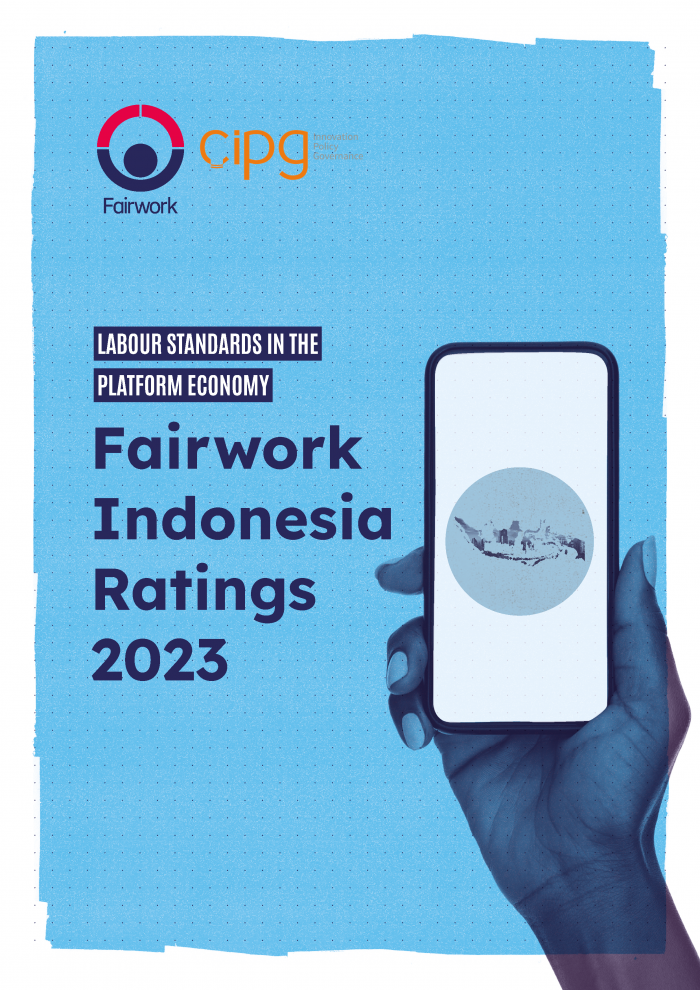Fairwork Indonesia Ratings 2023: Labour Standards in the Platform Economy


Despite the recent COVID-19 pandemic, economic slowdown, and inflation in fuel and food prices, Indonesia remains South East Asia’s largest digital economy. Along with e-commerce, the digital economy in Indonesia has been dominated by the platform work economy, especially in groceries, transport, and food delivery.
Previous Fairwork Indonesia reports found that Indonesian platform workers’ pay and working conditions fall well short of decent work
standards. The poor working conditions are characterised by the absence of labour rights, long working hours, unstable and low earnings, the absence of formally-recognised worker unions, risks to workers’ safety, limited access to accident and health insurance, as well as varied gendered challenges for female workers. Unfortunately, these issues are still evident in the third year of the Fairwork initiative’s research in Indonesia.
The purpose of this report is not only to present the working conditions of platform workers in Indonesia, but also to provide valuable insights and recommendations. By examining the challenges platform workers face and the factors contributing to their work conditions, this report outlines the steps that key stakeholders should take to improve their situation. This report also serves as a valuable source of data and insights for policymakers in their efforts to develop a clear legal standing for platform workers within the regulatory framework.
Read report in: